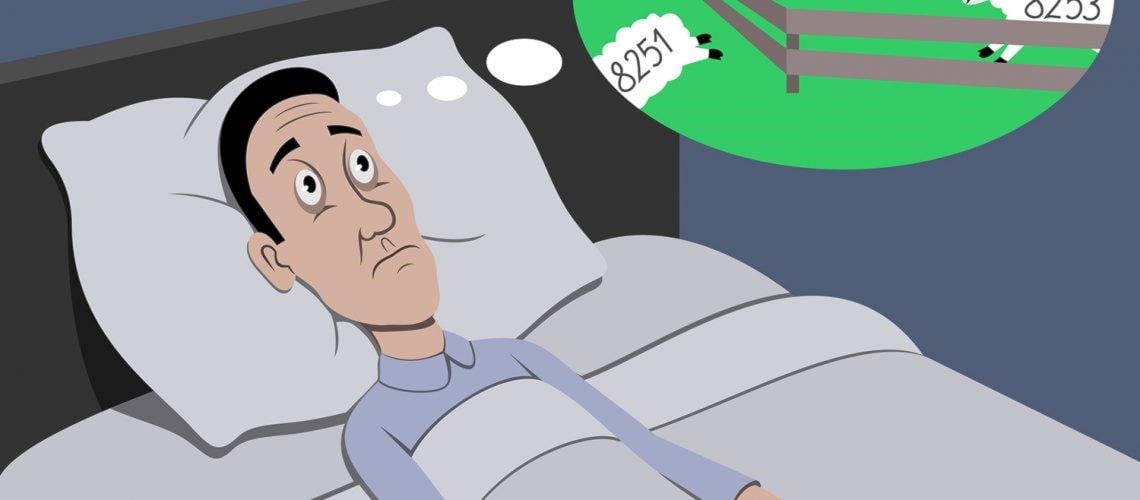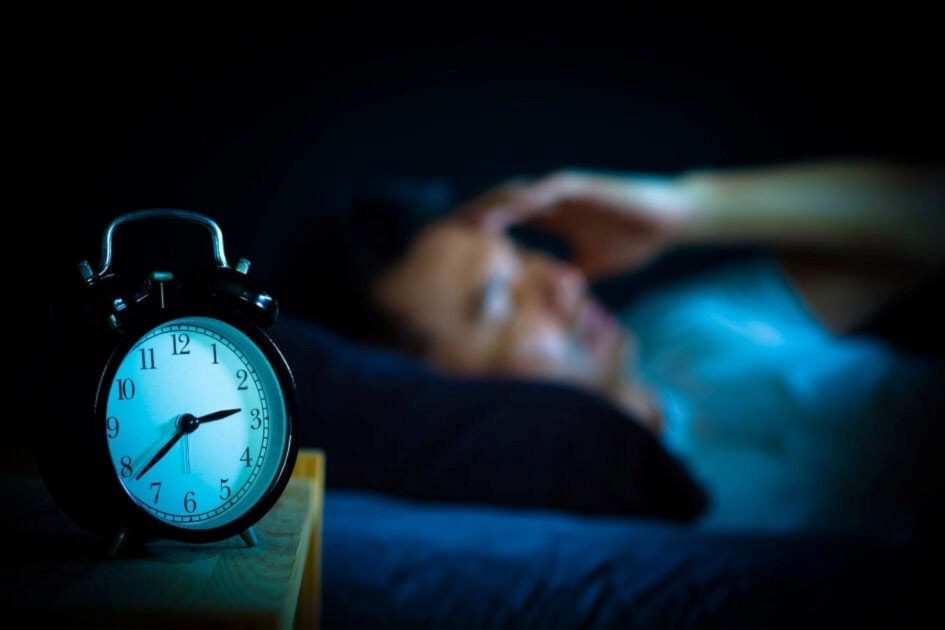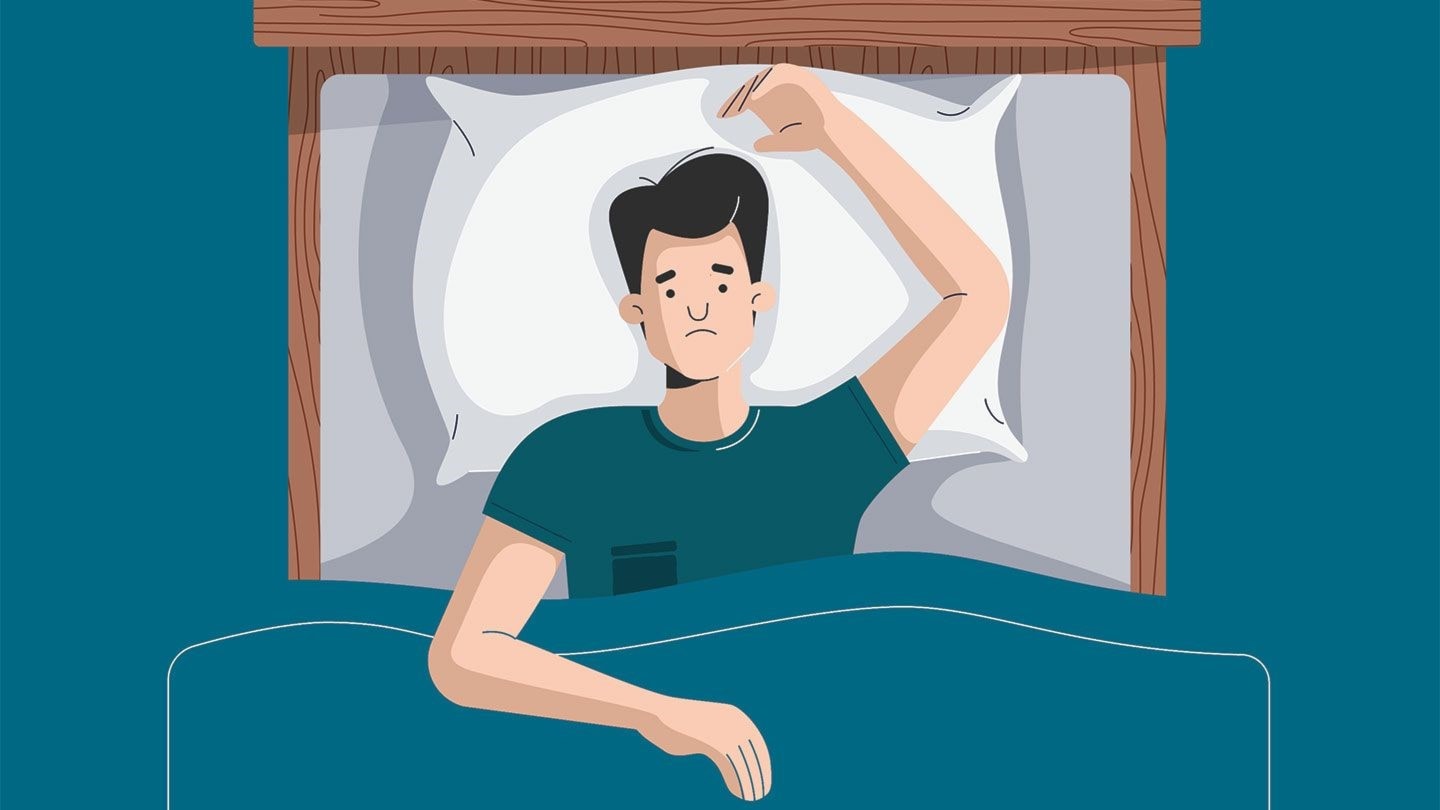
Why We're Having Trouble Sleeping During the Pandemic
by Anna North, from VOX.com | September 21, 2021
We can all agree that the COVID-19 pandemic has brought on many side effects, but one that isn't being talked about enough is insomnia. With people working from home, more and more people are getting up early or staying up late to get other things done. How come this is happening, and what can we do about it?
Remember sleeping?
For too many Americans, it’s a distant memory: a time when we were able to get in bed, close our eyes, and drift off unencumbered without worries about contracting Covid-19, or the hours of work that piled up after supervising a day of remote school, or whether we need to buy a different kind of mask (again).
Sleep deprivation has become one of the many side effects of the pandemic. It’s one that’s often invisible — a lot of people have no choice but to muddle through their day no matter how tired they are — but one that’s slowly wearing us down.
For some, lack of sleep is about lack of time. “I get up now hours before my kids to get a few hours of writing and work done,” Courtney Boen, a professor of sociology and demography at the University of Pennsylvania, told Vox. “I know I’m not alone.”
But for others, scheduling isn’t necessarily to blame. When the pandemic hit, rates of insomnia spiked around the world, driven by everything from the stress of living during an international public health crisis to the changes in daily life wrought by lockdowns. “People had additional responsibilities, new challenges, much more uncertainty,” Lauren Hale, a professor of family, population, and preventive medicine at Stony Brook University, told Vox.
And as the delta variant continues to spread around the country, that uncertainty and its effects on sleep may not have abated. Some people have just gotten used to disrupted cycles and 3 am anxiety spirals; it’s how life is now. As Jennifer Martin, a clinical psychologist who serves on the board of directors for the American Academy of Sleep Medicine, told Vox, “There are some people who are still experiencing a lot of disruption.”
While there are steps people can take in their own lives to address insomnia, sleep deprivation isn’t just a personal problem; it’s also a social one. And as with so many other problems in the pandemic, real relief will require policy changes — like shorter work hours, better pay, and improved access to health care — to make American life more secure for everyone.
“The stress and sleep disruptions and uncertainty that so many Americans experience now during the pandemic is something that is preventable,” Boen said. “It’s something that can be mitigated through policy decisions.”

The pandemic is a major insomnia trigger
Sleep is a basic human need, just like food or oxygen, and most adults need about seven hours a night. If we miss out on it for a night or two, we may notice problems like difficulty with decisions, not feeling mentally sharp, and becoming less tolerant of social conflict. Lack of sleep “kind of makes it harder for us to function around other people,” Martin said.
Those short-term effects are reversible once we do get a good night’s sleep. But when people get less than seven hours of sleep on a regular basis, they face increased risk of metabolic problems like type 2 diabetes, as well as mental health issues like depression, Martin said. And when they go below six hours for a long period of time, they can experience cardiovascular problems and even an increased risk of mortality.
All of this is bad news for a population that, even before the pandemic, wasn’t getting enough sleep. Americans’ sleep hours have been declining since the 1980s, according to NPR, with long work hours and stress the likely culprits. In one 2018 study, 35.6 percent of participants reported inadequate sleep, up from 30.9 percent in 2010. “We’re a very engaged 24/7 society, and one of the first activities that gets curtailed is our sleep,” clinical psychologist Todd Arnedt told NPR in 2018.
The pandemic made matters worse. In one study conducted across 49 countries in March and April 2020, 40 percent of people said their sleep was worse than before the pandemic. Participants’ use of sleeping pills increased by 20 percent. Google searches for “insomnia” also spiked in the US in April and May, when many parts of the country were under stay-at-home orders. Meanwhile, Americans’ spending on the over-the-counter sleep supplement melatonin increased by 42.6 percent in 2020. “That consumer behavior is a sign that people are struggling,” Martin said.
Then there are the hundreds of thousands of people who have contracted Covid-19. While insomnia isn’t technically considered a symptom of the disease, the respiratory symptoms can make it difficult to sleep. And clinicians are seeing a lot of chronic sleep problems in people experiencing long Covid. “We’re still trying to learn about that, and whether it might play a role in making the recovery more difficult,” Martin said.
While there’s not yet much data on sleep trends this year, experts say the sleep disturbances of the early pandemic could persist over time. For one thing, plenty of people are still dealing with a lot of anxiety around the pandemic, from those who have lost their jobs to those dealing with the stress of sending kids to school amid the delta variant. As Hale put it, “everybody has their own reasons why they aren’t sleeping as well during an international crisis.”
For another, any stressful experience that disrupts sleep for a period of time risks triggering chronic insomnia. When patients are asked how their sleep problems started, they’ll typically mention some “stressful event or a big change in their life as a thing that sort of got them off track,” Martin said. “Short-term insomnia is how long-term insomnia starts.” That’s one reason some Americans may still be having trouble sleeping now, more than 18 months into the pandemic, even if they’re vaccinated and their personal fears around Covid-19 have (somewhat) abated.
And that’s just the insomnia piece of the puzzle. Add to that the countless Americans who might be able to get to sleep — if they ever had time to actually get in bed. That group includes a lot of working parents, who have been navigating school and day care closures for more than a year and a half. For some, that’s meant dropping out of the workforce. For others, it’s meant doing the equivalent of a full-time job on top of their job: In 2020, mothers of kids under 12 spent an average of eight hours every day on child care, the 19th reported.
Those hours have to come from somewhere, and often, they come out of parents’ sleep. One 2020 study found levels of sleep deprivation in moms that were twice as high as those seen before the pandemic. And in a July 2020 poll by the Kaiser Family Foundation, 53 percent of moms and 29 percent of dads reported sleep problems from stress related to the pandemic.
For a lot of people, it hasn’t necessarily gotten better since then. “I’m chronically tired,” said Boen, the sociologist, who has a 6-year-old and a 2-year-old and has been without regular child care since March 2020. “I think that’s a really common experience right now.”

Sleep deprivation could worsen the impact of the pandemic, too
Being chronically tired could be putting our health at risk — especially as Covid-19 continues to spread. Habitual lack of sleep can harm our immune function, which is “particularly important when there’s a pandemic going on,” Hale said. “In an effort to prevent disease, we want to be sleeping well.”
Sleep deprivation could also exacerbate social inequalities. In general, “it tends to be the most vulnerable, disadvantaged individuals in society who have the worst sleep patterns,” Hale said. Racial disparities in sleep, for example, existed before the pandemic began. “African Americans, in particular, are the most sleep-deprived population in the United States,” Bridget Goosby, a sociology professor at the University of Texas at Austin, told Vox.
Since Black, Indigenous, and other people of color have been disproportionately impacted by the pandemic and financial crisis, they’re likely dealing with more stressors that could affect sleep. And that, in turn, could worsen the impacts of the pandemic by making these groups even more vulnerable to getting sick, either with Covid-19 or with conditions like diabetes that are affected by sleep.
“Not only has the pandemic heightened levels of chronic stress in ways that have been highly unequal, it’s also disrupted sleep patterns in ways that prevent people’s bodies from being able to handle that level of physiological stress,” Boen said. “It’s this sort of double jeopardy that I think a lot of people and groups are facing.”
Without policies to address them, the effects of these disruptions are likely to persist beyond the immediate stressors of the pandemic, affecting people across their lives. “We’re going to see higher rates of morbidity, illness, chronic disease risks,” Goosby said. “This is a really alarming situation for populations that were already vulnerable.”

To help people sleep, we need to make their waking lives better
Even in a pandemic, however, widespread sleep deprivation isn’t inevitable. On an individual level, there are changes some people can make that could help them sleep better. First, to the extent possible, people can try to replicate the daily rituals that structured their lives before the pandemic started. “Our sleep loves routine,” Martin said. “When the days look the same, our sleep at night is more predictable.”
For a lot of Americans, life looks very different than it did before the pandemic — and everything from shifting work schedules to child care and school disruptions can make it hard to establish a daily routine. But every little bit helps. “For me, one of the things that helped a lot early in the pandemic was to have a start and end time for my work day,” Martin said. “I just would pretend that I was going to go to work, and I would get up and get dressed, and have breakfast and do all the things that I normally would, and start my day, and then have a time that I would just shut down my computer.”
Sometimes, however, the modifications people can make on their own aren’t enough. In that case, a form of cognitive behavioral therapy, which helps people identify thoughts or feelings related to insomnia, has been shown to be highly effective, Martin said. People should also consider visiting a sleep medicine physician, because many people with insomnia also have other sleep disorders, like sleep apnea, that may need specialized treatment. The website sleepeducation.org, from the American Academy of Sleep Medicine, also has resources to help people sleep better or find a sleep specialist if they need to.
But unfortunately, these solutions aren’t accessible to everyone. Not everyone has health insurance to pay for therapy, and not everyone has enough control over their schedule to make sure it’s predictable from one day to the next. That’s why experts say ensuring healthy sleep for all will require systemic changes, not just individual fixes, to reduce the fear and uncertainty inherent in American life.
Some of those are changes employers can make, like allowing flexible work hours or providing consistent scheduling so that people can plan ahead for work and child care. “Anything that enables employees to get the sleep they need, as long as they’re still doing their job, will improve morale and reduce stress, which can help with sleep as well,” Hale said.
Shorter work hours could also help. In one Swedish study, reducing the workweek from 39 hours to 30 hours led to a reduction in sleep problems as well as a reduction in heart and respiratory issues. And while flexibility for working parents in the pandemic is important, it’s not much help if they still have so much work that they need all night to complete it.
Then there are larger policy changes. “People tend to think of things like stress and sleep as these highly individualized behaviors or responses,” Boen said. “But they’re entirely shaped and determined by social and political conditions.”
Federal, state, and local officials may not be able to end the pandemic, but they can address the stresses that have been exacerbated by it — and that contribute to racial and economic disparities in sleep, Hale said. That means reforms like raising the minimum wage, along with increasing access to affordable health care, both for sleep issues and for general well-being. “If you’re in pain or distress or sick, your sleep is often affected,” Hale said.
It also means combating structural racism, from housing segregation to police violence to the school-to-prison pipeline. “One policy is not going to be the thing that fixes sleep,” Goosby said. “We have to have a really big-picture way of thinking about this all holistically.”
Ultimately, she added, “sleep is just a symptom.”

BROWSE BY TAG:
BROWSE BY ALL CATEGORIES::
MOST POPULAR:
MOST RECENT:





